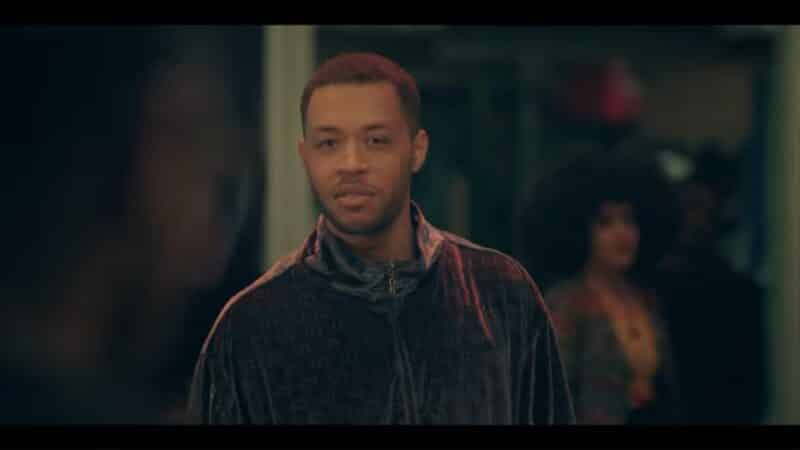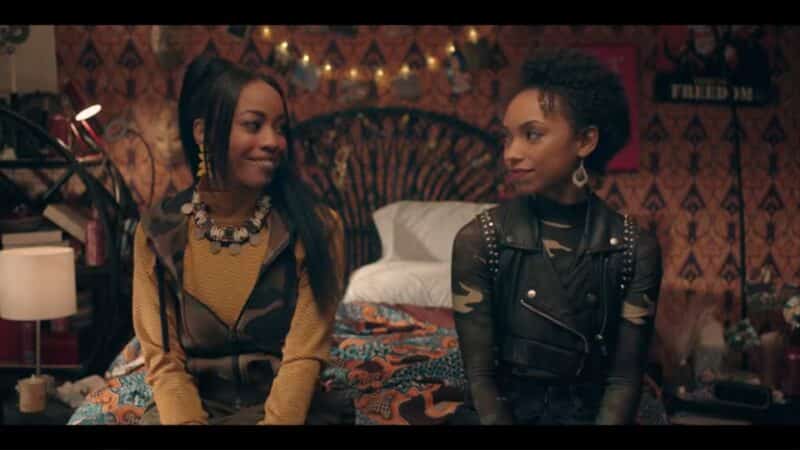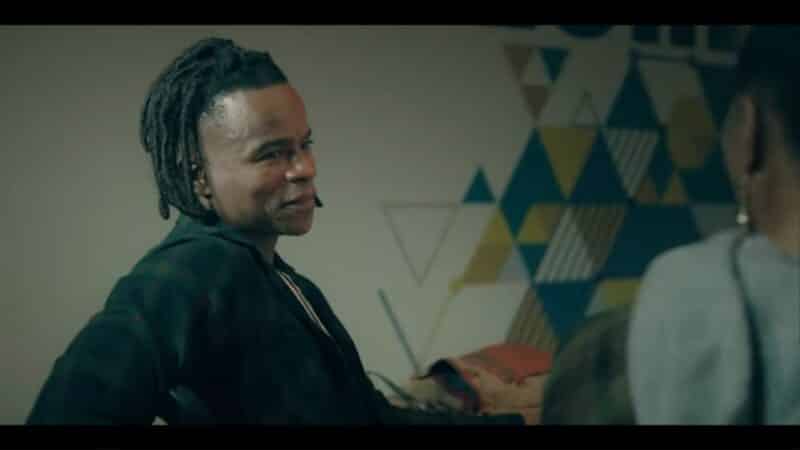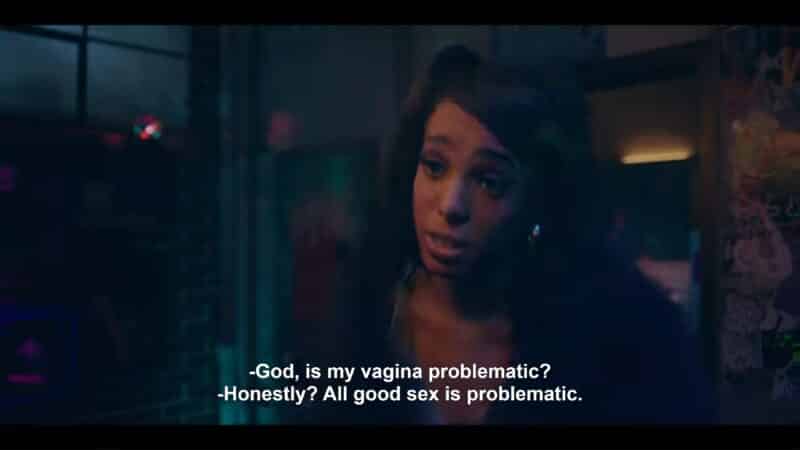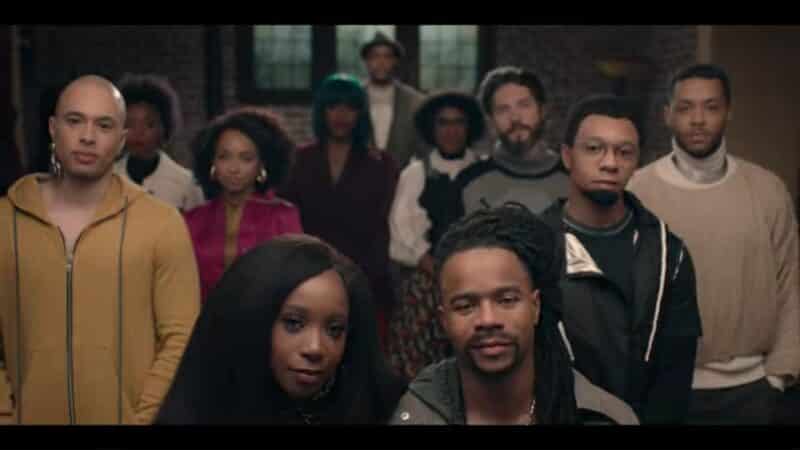Dear White People: Season 4 (Volume IV) – Review/ Summary (with Spoilers)
Dear White People ends triumphantly for most, as we not only get to see how senior year went but get an idea of what the future holds.

Spoiler Alert: This summary and review contains spoilers.
Additionally, some images and text may include affiliate links, meaning we may earn a commission or receive products if you make a purchase.
Dear White People ends triumphantly for most, as we not only get to see how senior year went but get an idea of what the future holds.
| Season Premiere | 9/22/2021 |
| Season Finale | 9/22/2021 |
| Episodes | 10 |
| Network | Netflix |
| Created By | Justin Simien |
| Genre(s) | Comedy, Drama, Romance, Young Adult, LGBT, Musical |
| Noted Cast | |
| Troy | Brandon P Bell |
| Iesha | Joi Liaye |
| Sam | Logan Browning |
| Lionel | DeRon Horton |
| Michael | Wade F. Wilson |
| Joelle | Ashley Blaine Featherson |
| Reggie | Marque Richardson |
| Dean Fairbanks | Obba Babatundé |
| Helen | Judith Scott |
| Coco | Antoinette Robertson |
| Muffy | Caitlin Carver |
| Genifer | Quei Tann |
| Al | Jemar Michael |
| Gabe | John Patrick Amedori |
| Brooke | Courtney Sauls |
This content contains pertinent spoilers.
Season Summary
It’s senior year, and thanks to The Order, Troy has gotten the ability to Winchester’s historic Varsity Show. This began as something to be happy and proud about, but as it causes factions within Winchester’s Black community, due to the Varsity Show’s history and it being held at a building named after a slave owner, the glee starts to wear off. Especially as a new head of Black AF, Iesha, protests the show and even challenges Sam in ways Sam hasn’t been since she made peace with Reggie and Troy.
But, what the season stretches out is the idea that a school shooter came to the Varsity Show, and as we visit the future and watch Sam and Lionel plan out what is Volume IV of Dear White People, we wonder who might have died.
[ninja_tables id=”60381″]
Collected Quote(s) & .Gifs
Gay Black men create culture. We never get to be the center of it.
— Michael (Episode 1)
We all have a lot of needs but, being productive is just one of them.
— Ronald (Episode 2)
Science explains the how of things but not the why.
— Joelle (Episode 2)
We can’t change the past, but we can shape the future by taking advantage of the present.
— Troy (Episode 2)
I need something worth waking up for.
— Reggie (Episode 2)
[…] has given you a lot of rope. You can use it to climb or to hang yourself.
— Dean Fairbanks (Episode 3)
Some things never change. Every radical cuts his teeth on the status quo until he becomes the status quo, and then it starts all over again.
— Helen (Episode 3)
You may wear it better now, but it’s still the same costume.
— Sam (Episode 3)
I didn’t just come here to protest the system. I came to rebuild it.
— Iesha (Episode 5)
Letting yourself feel your anger gives you clarity.
— Iesha (Episode 5)
Intent stops mattering when you keep doing it.
— Lionel (Episode 6)
This movement for liberation requires a multilane highway.
— Sam (Episode 9)
A movement is about individuals joining forces to save the collective.
— Iesha (Episode 9)
[I] fucking hate mature-ass people. All while trying to become one.
— Iesha (Episode 9)
I do want to be better. I just need to be mediocre sometimes.
— Sam (Episode 9)
If we don’t cancel each other out, there ain’t shit anyone can do to stop us.
— Sam (Episode 9)
Review
Highlights
Iesha
Iesha might be one of the best things to come out of season 4. Yes, she does begin things as the Sam for the next generation. However, that’s only in the beginning. For what Iesha does is deconstruct Sam in such a way that allows you to understand the concept of the “Cakewalk,” and while her comments about Beyoncé may raise an eyebrow, there is never a doubt that Iesha is making valid points. Yes, you may not like what she says, but you can’t outright say she is wrong.
Though, even outside of her holding Sam accountable and her feet to the fire, there is also their relationship regarding Iesha looking up to Sam. After all, Iesha is a freshman, I believe she says she is 18 when Al was hitting on her, and Sam is 22. In many ways, she idolized Sam and getting to really be in her space, it helped push the idea that you shouldn’t meet your heroes.
But, by the end of the season, there is a realization of how much they need each other. Sam has become complacent because she has become part of the system at this point. Dear White People has become part of the Winchester family and is used for advertising the school. It is no longer radical, and Sam even advertises Casper mattresses on the show! Add in Black AF, the BSU, and its members don’t really challenge Sam anymore, what is there to keep her sharp? Hence why Iesha comes off as such a threat since, at this point, it seemed Sam took on all there was to fight and had the ability to get comfortable at last.
Yet, ultimately their contentious relationships calms down, and they find a bond through their similarities once they step off their platforms. And alongside Iesha’s scenes with Sam, she has multiple with Reggie and her talking about herself as an individual. For whether she is helping Reggie heal from PTSD by taking him to a gun range or talking about the challenge of being Haitian and being unsure what you’re classified in the racial draft, there is so much to Iesha.
SESTA/FOSTA & Sex Worker Talk
Unless a show is specifically about sex workers, usually the topic of sex work and what sex workers go through might be a topic for one episode, and that’s it. However, with Michael being Lionel’s boyfriend and having a network of sex workers, paired with Reggie’s interest in their oppression, they get a temporary voice. We get to understand their plight, how a forgotten law like SESTA/FOSTA still affects them, and while Dear White People moves on from the sex workers and leaves them behind for other things, at least it was given a temporary moment in the sun.
Working The System, And Making It Your Own vs. Fighting The System, By Criticizing and Destroying Its Traditions
In modern society, overthrowing the system is a challenge, if not impossible. You can shame people into being more subtle in their actions, but eliminating a problem, altogether? Yeah, that’s impossible. So comes the question then, will you be like Sam and eventually integrate into the system, think of yourself as having a seat at the table, or at least a piece of the pie, or be like Iesha and demand change from outside?
It’s a constant struggle, for as much as you have to appreciate activists who hold those with the majority of the power accountable, there has to be a negotiation. There has to be signs you are invested in the system, and only so much can be done from outside the machine. This isn’t to say Sam, Troy, or anyone really had any power, but Sam was being used by the administration, and through them, she had a platform beyond the school because of it. The Order may have been using Troy and wanted to use Lionel, but, as shown, bringing new blood and ideas doesn’t mean instant change. You have to be in it for the long haul and be willing to do long-term work.
Hence The Order’s existence and working for generations to change things. For if they just focused on bettering things while at Winchester and then, similar to Sam, feeling like they did something by ruffling some feathers, all their work would disappear. Most issues in society, as shown by this season, need multiple generations to buy in, whether it is the age difference between Sam and Iesha, or The Order and Troy, for as you gain access towards the core of the system, someone has to remind you what you started the fight for.
Big House
Each season of Dear White People has had some TV show within a TV Show and this season had Big House. But, the difference this time around is Coco was in the show, so it became more than a random show in the background without any real importance to the story. Also, it allowed Coco to be separate and not deal with the Varsity Show drama. Instead, she dealt with Muffy, how Black women are pitted against each other for entertainment, and dealing with privilege in a stifling microcosm. Which, as entertaining as it was, also called out how reality TV has long operated.
The Fear Of Going From Having Potential To A Disappointment
Reggie is repeatedly offered a massive amount of money this season for his skills or the app he makes. With Iesha, and Joelle, you can see both imagine this certain trajectory for him based on his potential, and through Reggie, you get a sense of what it means to be young, gifted, and Black, and in fear of when you no longer live up to that title. For it is one thing to have potential and make the steps to it being realized by being productive. However, once you release something and there is criticism and see all the ways you could have done better, does that mean you are no longer good enough?
It’s a weird thing. Something that not only Black men and boys but Black women and girls go through as well. There is the desire to be seen as exceptional, and in the process of doing that, you burn yourself like Joelle and try to be everything to everyone. Meanwhile, the things that really matter, that safety net for if you fail, like friendships and relationships, you don’t tend to while chasing some sense of respectability and stability.
After all, when you are taught you have to be twice as good throughout your life, and there isn’t room for mediocrity or rest; something has to give. For Joelle, it was trying to autopilot her relationship. Reggie became insecure and needed Joelle, Iesha, someone to co-sign the movies he made. Then, when it came to Sam, she got stuck in that rat race of needing to produce more and more and have that work that represents her vision and voice validated.
Black Progress Always Leaves Someone Behind
Intersectionality is a constant issue when it comes to any civil rights movement. As noted in the film Kiki, while the right to marry was important to the LGBTQIA+ community, there were a slew of other issues just as, if not more important, like resources for trans people, dealing with the homeless crisis, and many other problems. We see this come up when it comes to what Troy wants when heading the Varsity Show vs. what Michael wants to bring regarding being Black, queer, or even a former sex worker.
Even in American history, take note of all the people of the Civil Rights era. Whether due to them being gay or a woman, they didn’t get the prominent role that had them at the front and leading things forward. They were made optional names you could learn, usually by reading on your own vs. those taught like Malcolm X or Martin Luther King, simply because they aren’t seen as a straight male.
The Varsity Show was no different when it came to Michael speaking to his experience. Yes, he was a Black man, but he wasn’t a straight one, and while The Order may have appreciated, and even were tickled by the controversial end Troy came up with, but what they didn’t want was for the finale to deal with gay sex work and Michael’s highly personal coming out story. It wasn’t “The Narrative” they wanted.
Which, in essence, presents what Michael said early in the season. When it comes to the LGBTQIA+ community, the powers that be want them fun and sanitized, with a focus on the big picture of how it could help the much group they are part of. But, when it is time for reciprocity, they lose that allyship because of its look and are told it just isn’t the right time. And unfortunately, because they cannot bring their own problems to be part of the fervor of the moment, the right time seems to always get pushed back decades down the line.
Low Points
Wishing We Got More Genifer
While previous seasons expanded what it means to be a queer person of color, including at a PWI college, the final season, in an effort to wrap things up, largely steps back from queer identity while introducing us to the character Genifer. They are someone who joins Troy’s Varsity Show and has all this energy and a potential storyline, including a revue they made that gives a performance platform to Winchester’s queer population. However, the show shrinks what otherwise could have been a notable character due to time. Thus, the only queer representation we really get is Lionel and Michael, who are in a Gabe and Sam makeup to breakup cycle, with Brooke occasionally talking about being pansexual.
Despite Al Talking About Spending Time With Latinos, We Don’t See Them
When it came to LGBTQIA+ representation, that diminished, but in terms of Latinos? They are pretty much non-existent in season 4. Al speaks about meeting with them every so often, but because Al is rarely if ever, allowed to be more than comic relief, we don’t see him with Winchester’s Latino/ Hispanic community at all. Pretty much, season 4 solely focuses on the Black experience, and everyone else is either barely featured, like Muffy, or considered non-essential.
On The Fence
So, What Does Everyone Else Do For A Living?
Did we need to learn, in the future, what every last person did? Not necessarily. However, with this being the final season, it would have been nice to know what Genifer ended up doing, Brooke’s job, Coco’s specific title, Iesha, and a few others. I get closure can’t always be guaranteed, but it would be nice for a show that likely won’t have a peer anytime soon.
Eclectic Music Choices
From N*Sync, gospel, R&B/Hip-Hop classics, pretty much everything but country, and any notable rock songs are included this season. The diversity is appreciated, but I must admit, the lack of genres or artists not strongly tied to most people’s perception of Blackness was a missed opportunity. Also, while the song choices were good, they weren’t so great that it pushed you to want to go on Spotify to hear the original or Dear White People version. Never mind, it rarely seemed like the best creative choice they could have made for the final season as a whole, rather than an episode – or at all.
Joelle’s Storyline
Like the LGBTQIA+ community, Joelle’s community of Christians, or people of faith in general, shrinks, and while still featured, they aren’t in a capacity that feels layered and full. Rather, they are featured in such a way that almost feels obligatory. But what makes their part in Joelle’s life not an utter low point is how the question of belief vs. faith comes into play and the study Joelle is doing about prayer in medicine.
Unfortunately, the prayer in medicine topic isn’t dived into much, but Joelle is challenged in her belief vs. faith. Sadly, this is only by her advisor, who plays a minor role overall, so it’s a bit of a missed opportunity to separate a person’s faith in God and their belief in themselves. If not the belief that everything presented to them is a gift from God and through sacrifice, they will have glory.
Helen & Troy
I don’t know what the issue was. Was it that there was no build or questions about Troy’s mom the same way there could be about Sam’s or Coco’s? Could it be that, at this point, Troy is one of the least interesting characters, so bringing his mom into play didn’t help things? It’s hard to say.
However, I must admit I liked the idea of the mother being the one who abandoned their child rather than it being the father. Especially considering Dean Fairbanks and Helen still have love for each other, it is just with Helen not really wanting to be a mother, she didn’t know how to be what Troy wanted. A storyline that perhaps deserved a better character than Troy to flesh out the scenario.
Overall
What’s Considered For Our Final Rating
Rating: Mixed (Stick Around)
Dear White People doesn’t necessarily end on a high note, but you can contribute that to it being a show with a large cast of characters and it trying to wrap up everything. So, because of that, the diversity and voices we got in previous seasons had to be eliminated in order to wrap up Gabe and Sam’s storyline, amongst other friendships and couples. Which does lead to some disappointments, but only in the form of the frustration many Black predominate shows have the burden of since you know there aren’t dozens upon dozens of similar programs. So you want and need them to be perfect, or damn near, and in pursuit of reaching trying to reach that, you see so much lost potential.
This is why we’re rating this mixed (stick around). Dear White People‘s final season is imperfect, just as the show was, and it seems to own that. And while it isn’t the most satisfying final season, it is good enough for those who have stuck with it since the beginning.

